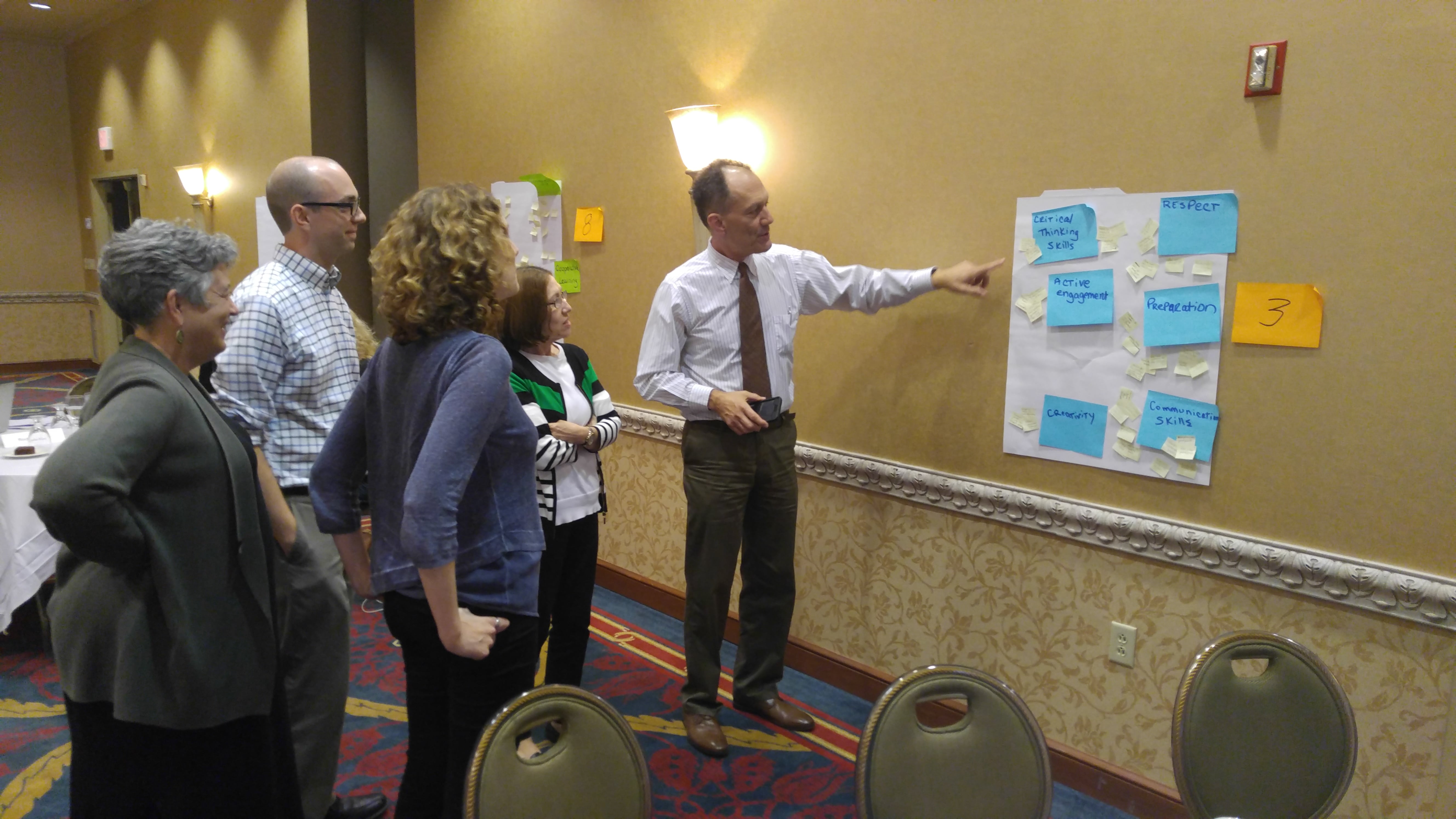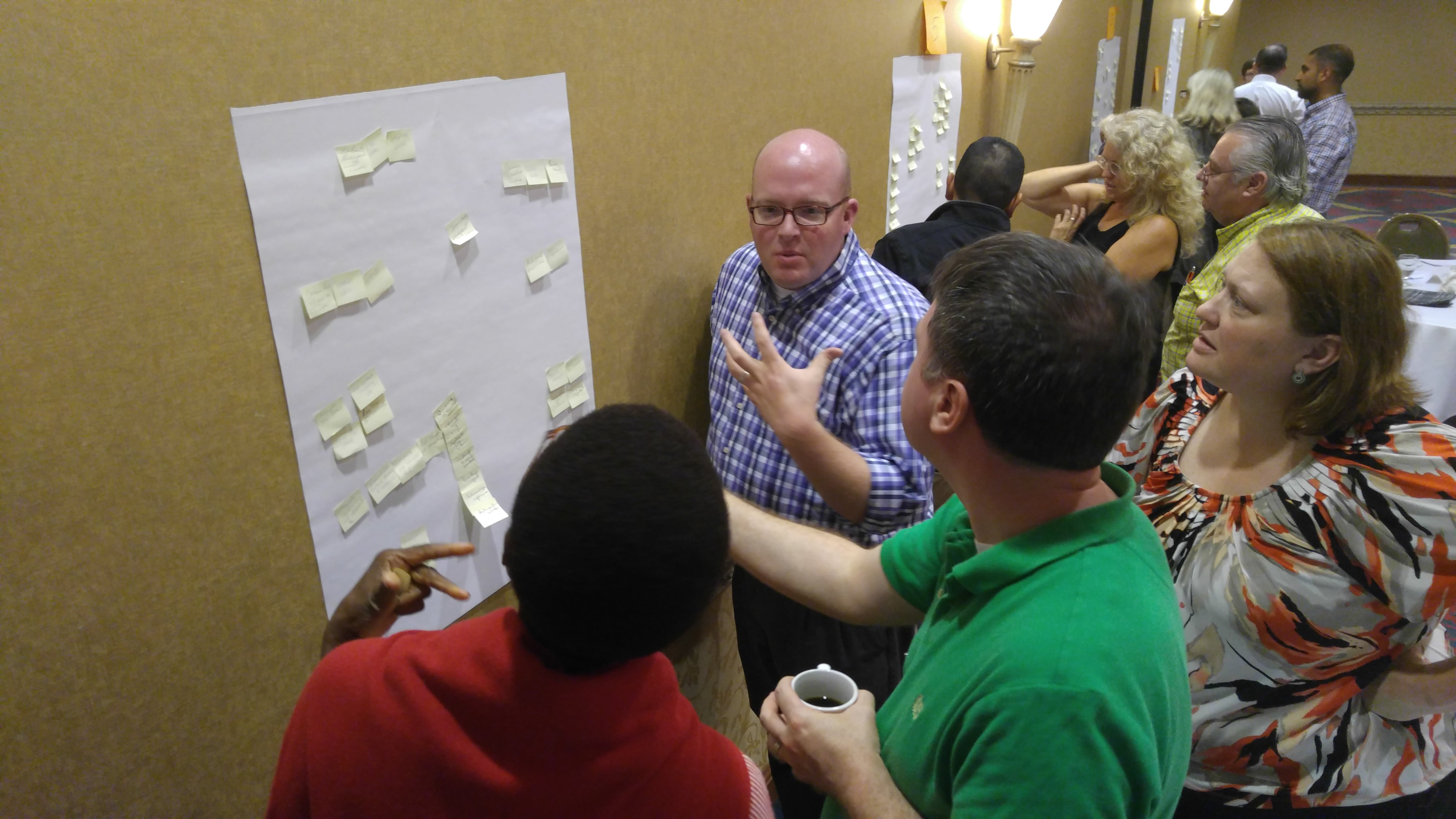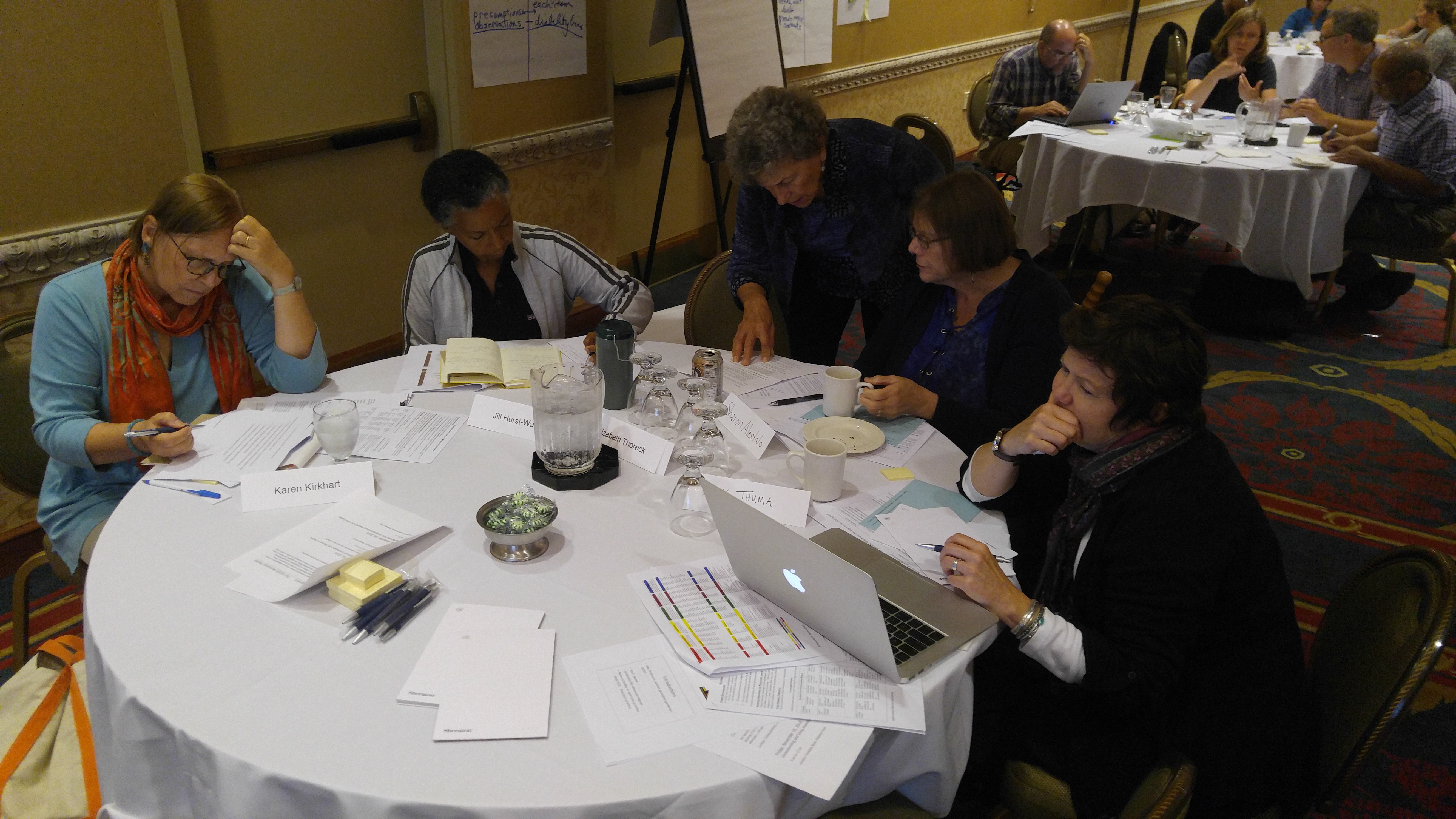The assessment working team (AWT) is offering the following opportunities for co-curricular and functional assessment contacts to engage with other co-curricular and functional programs/units colleagues who are responsible for assessing student learning/operational outcomes and operational objectives respectively. The aim of these sessions is to develop a support network, learn best practices, and offer feedback on how the AWT can support co-curricular and functional programs/units assessment activities. Please note that Dean’s Offices and University Senate Committees are included as functional units.
Visit our Assessment Resources page for more details and tools for the assessment process.
Assessment and Action Plan Update: ‘Get it Done’ Session for Co-Curricular Programs/Units
The annual Assessment and Action Plan update cover activities occurring between July 1 and June 30 of a given year. The annual assessment and action plan update is due by November 1. For programs/units within the Division of the Student Experience the deadline is August 1.
The Assessment Working Team invites you to join a working session to complete the 2024-25 assessment and action plan update for your program/unit. Bring your laptop and 2024-25 data and join us for a working session.
- Before | Get feedback from your colleagues about what the data means for the student learning outcome(s)/ success outcome(s) being assessed.
- During | Ask questions, get support, & complete the update.
- After | Cross it off your “to do” list!
| Date | Time | Location |
|---|---|---|
| Wednesday, July 9, 2025 | 11:30 a.m. – 1:00 p.m. | Hillyer Room, Bird Library Room 606 |
| Wednesday, August 6, 2025 | 9:30 a.m. – 11:00 a.m. | Hillyer Room, Bird Library Room 606 |
| Wednesday, August 13, 2025 | 1:30 p.m. – 3:00 p.m. | Hillyer Room, Bird Library Room 606 |
| Friday, September 12, 2025 | 11:30 a.m. – 1:00 p.m. | 500 Hall of Languages |
| Friday, September 26, 2025 | 9:30 a.m. – 11:00 a.m. | Spector Room, Bird Library Room 608 |
| Friday, October 10, 2025 | 9:30 a.m. – 11:00 a.m. | Spector Room, Bird Library Room 608 |
| Friday, October 24, 2025 | 11:30 a.m. – 1:00 p.m. | Spector Room, Bird Library Room 608 |
Assessment and Action Plan Update: ‘Get it Done’ Session for Functional Units
The annual Assessment and Action Plan update cover activities occurring between July 1 and June 30 of a given year. The annual assessment and action plan update is due by November 1. For programs/units within the Division of the Student Experience the deadline is August 1.
The Assessment Working Team invites you to join a working session to complete the 2024-25 assessment and action plan update for your unit. Bring your laptop and 2024-25 data and join us for a working session.
- Before | Get feedback from your colleagues about what the data means for the success outcome(s) being assessed.
- During | Ask questions, get support, & complete the update.
- After | Cross it off your “to do” list!
| Date | Time | Location |
|---|---|---|
| Wednesday, July 9, 2025 | 1:30 p.m. – 3:00 p.m. | Hillyer Room, Bird Library Room 606 |
| Wednesday, August 6, 2025 | 11:30 a.m. – 1:00 p.m. | Hillyer Room, Bird Library Room 606 |
| Wednesday, August 13, 2025 | 9:30 a.m. -11:00 a.m. | Hillyer Room, Bird Library Room 606 |
| Friday, September 12, 2025 | 1:30 p.m. – 3:00 p.m. | 500 Hall of Languages |
| Friday, September 26, 2025 | 11:30 a.m. – 1:00 p.m. | Spector Room, Bird Library Room 608 |
| Friday, October 10, 2025 | 1:30 p.m. – 3:00 p.m. | Spector Room, Bird Library Room 608 |
| Friday, October 24, 2025 | 1:30 p.m. – 3:00 p.m. | Spector Room, Bird Library Room 608 |
Student Affairs Assessment Leaders (SAAL) Resources
The Student Affairs Assessment Leaders (SAAL) “provides the opportunity for educators that coordinate assessment for divisions of student affairs to discuss issues to improve their work. ” Below are some of our favorite resources, for even more information visit the SAAL website.
Prior Workshop Presentation and Resources
Several workshops have been offered on campus over the last few years. Presentation materials and other resources are provided below. We are in the process of creating these resources as accessible documents. If you have questions, please contact the assessment working team at assessment@syr.edu.
Jump to Section
- Meaningful and Manageable: Equity Centered Assessment in Action
- It’s Time to Revise! Presentation Slides for Co-Curricular Program/Unit
- It’s Time to Revise! Presentation Slide for Functional Units
- Moving Beyond Phase 1
- Outcomes-Based Assessment to Support Student Learning and Development
- Understanding and Using Assessment Results
- Introduction to Rubrics
Meaningful and Manageable: Equity-Centered Assessment in Action
On May 25, 2022, Gavin Henning conducted a series of interactive workshops to incorporate equity-centered practices and further develop assessment efforts for co-curricular and functional units. Find below session recordings and presentation slides.
Everyday Assessment
- Everyday Assessment Slides (*.pdf)
Reframing Assessment to Center Equity
Building Your Assessment Toolkit
Turning Assessment Into Action
It’s Time to Revise! Presentation Slides for Co-Curricular Program/Unit
It’s time to Revise! Part 1: Goals and Outcomes
On March 26, 2021 staff engaged in conversations about revising the foundation of a plan to ensure goals and outcomes align well with your mission and divisional priorities.
- Slides (*.pdf)
It’s Time to Revise! Part 2: Creating Strong Criteria
On April 9, 2021 staff learned about different types of measures that can be used and how to establish strong criteria, providing an opportunity to fully develop this final piece of the plan’s foundation.
- Slides (*.pdf)
It’s Time to Revise! Presentation Slide for Functional Units
It’s Time to Revise! Part 1: Goals and Objectives
On March 26, 2021 staff engaged in conversations with the Assessment Working Team and colleagues about revising the foundation of a plan to ensure goals and objectives align well with your mission and divisional priorities.
- Slides (*.pdf)
It’s Time to Revise! Part 2: Creating Strong Targets
On April 9, 2021 participants learned about developing effective target statements.
- Slides (*.pdf)
Moving Beyond Phase 1
On May 22, 2018, Gavin Henning conducted four workshops to support co-curricular and functional areas in enhancing assessment efforts. Please find the materials from those workshops below:
- Creating and Sustaining a Culture of Assessment
- Maximizing the Assessment Toolkit
- Putting Assessment into Action
Outcomes-Based Assessment to Support Student Learning and Development
On February 14, 2017, Marilee Bresciani conducted a workshop at Syracuse University on how to do outcomes-based assessment for co-curricular units. Find below the slides from the presentation:
- Presentation Outcomes-Based Assessment to Support Student Learning and Development (*.pdf)
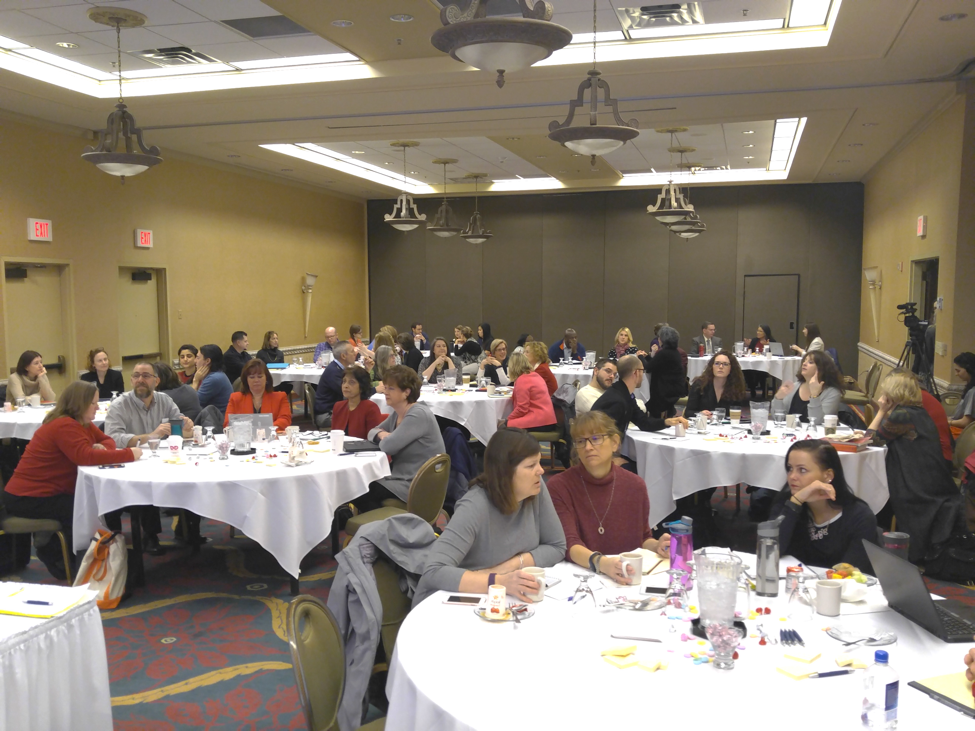
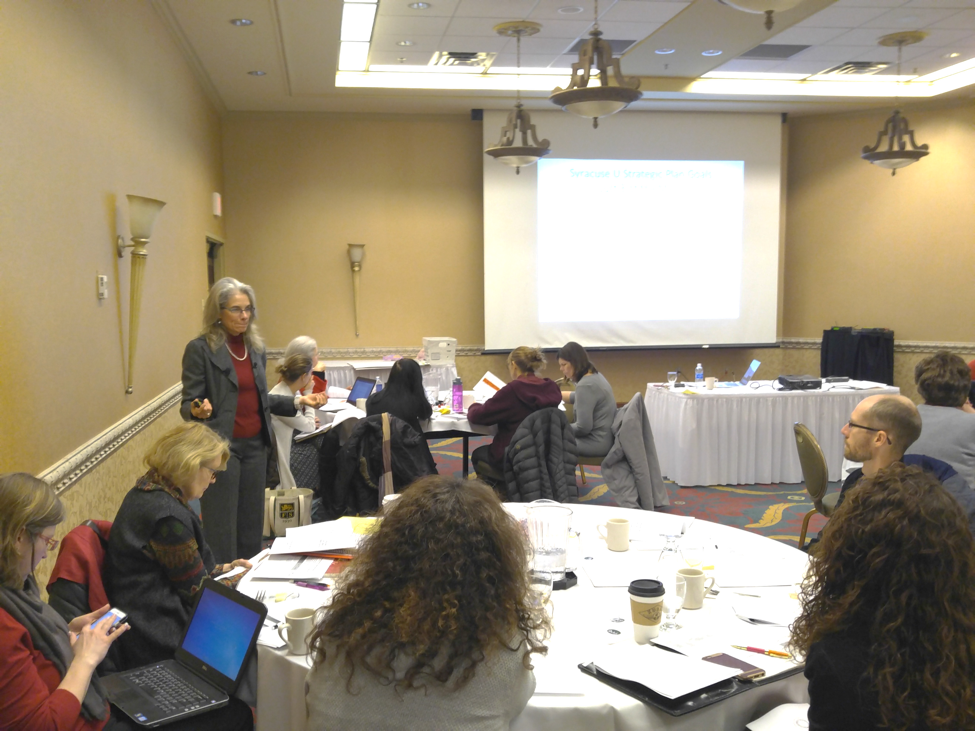

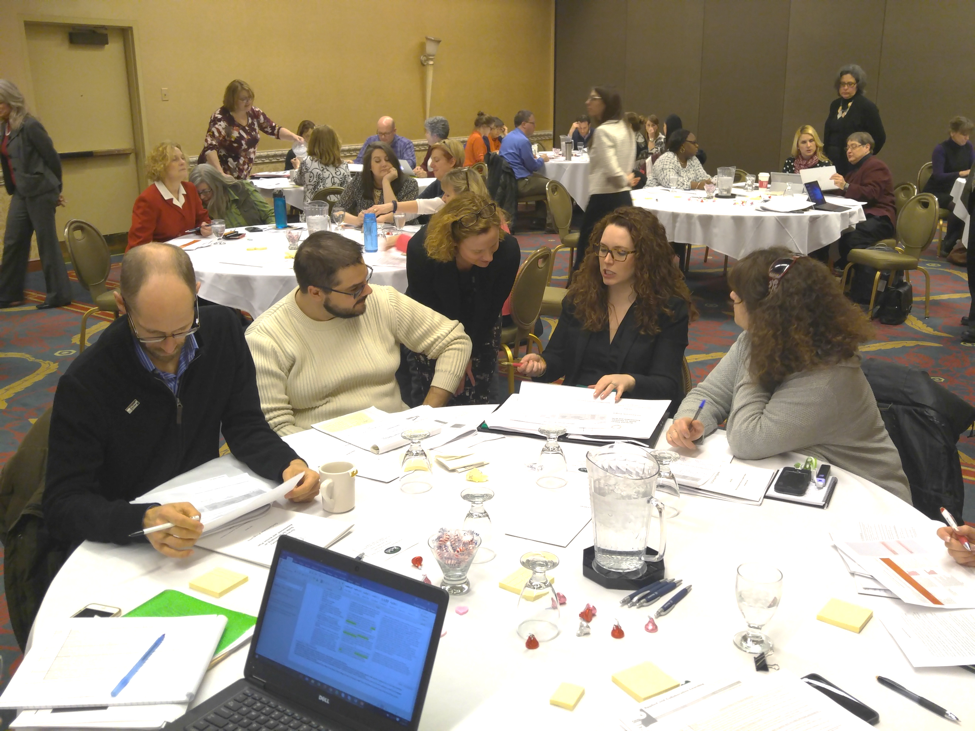
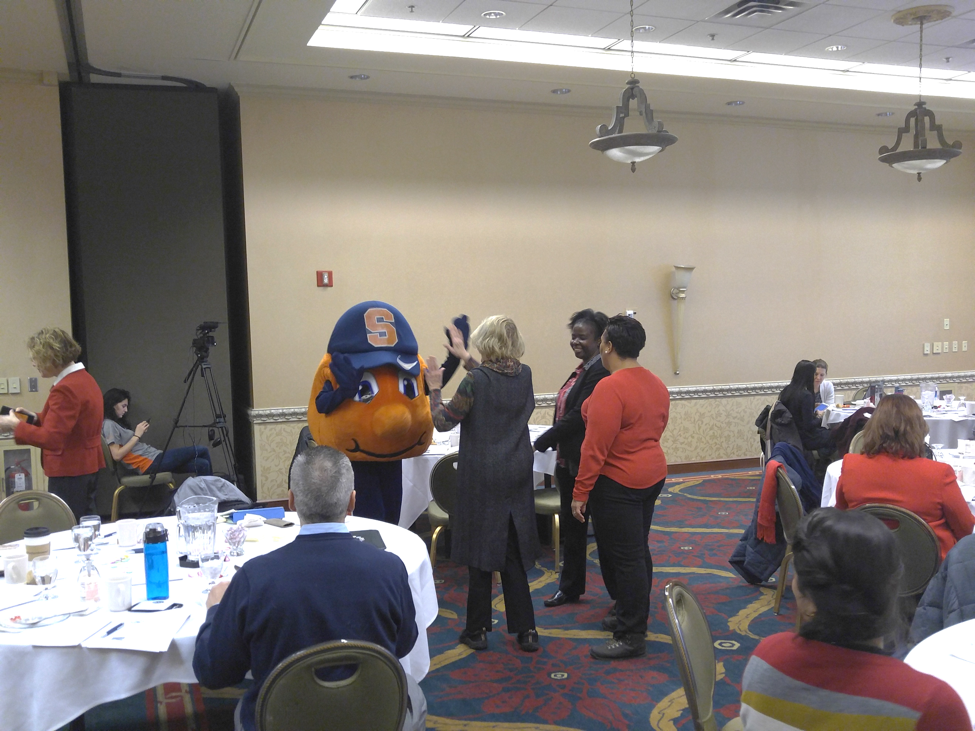
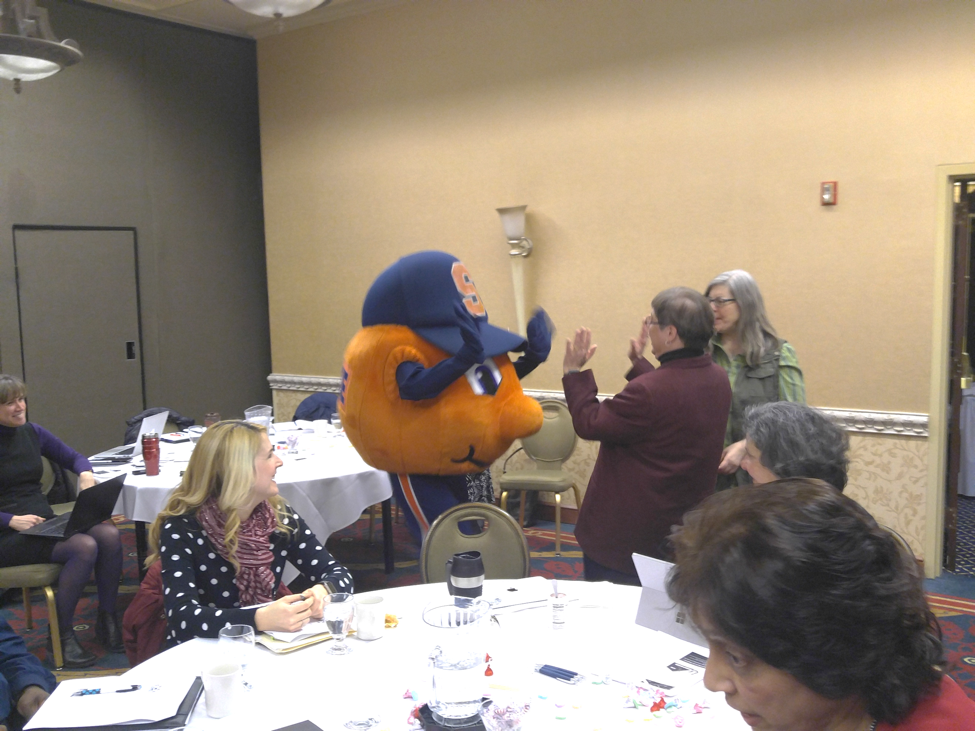
Understanding and Using Assessment Results
On November 18, 2016, Linda Suskie conducted a workshop at Syracuse University on how to use the assessment results obtained during the assessment annual cycle. Find below the slides and handout from the presentation:
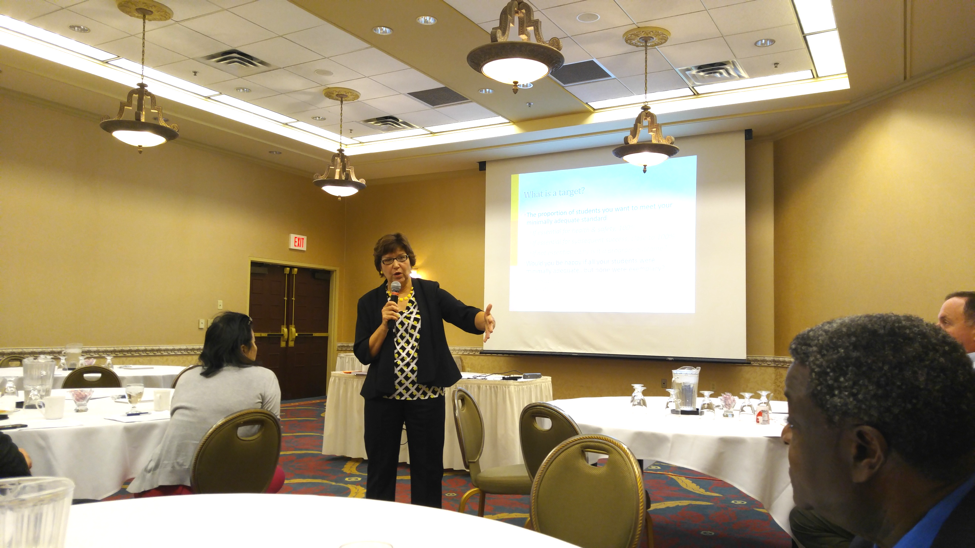
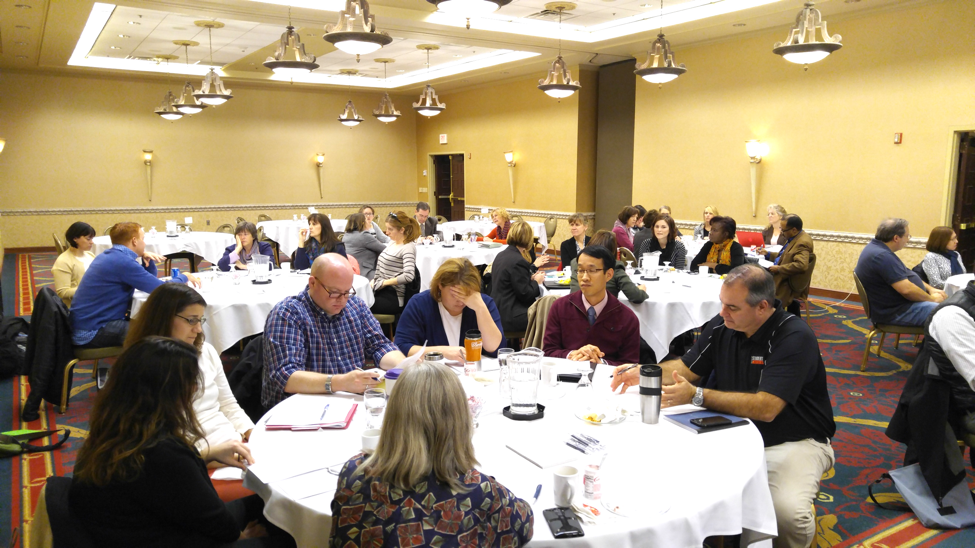
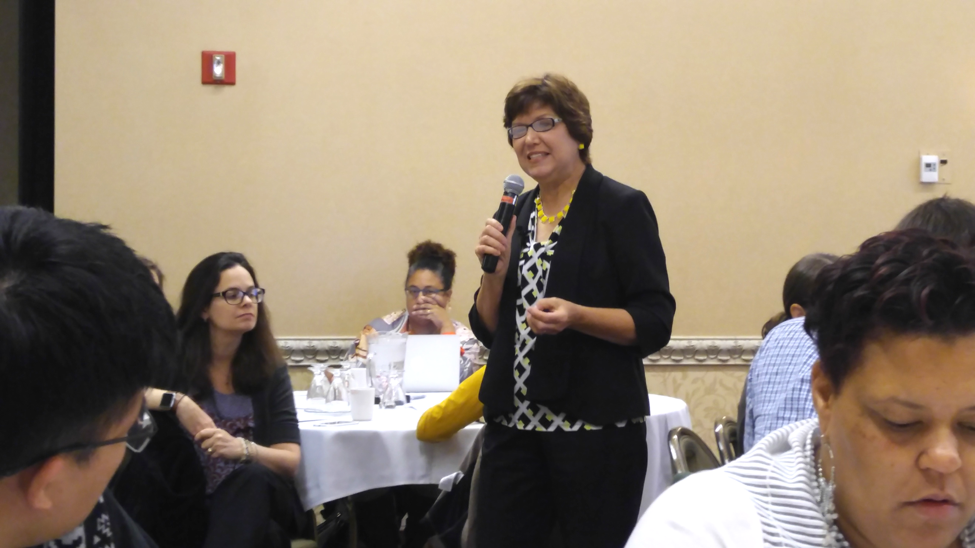
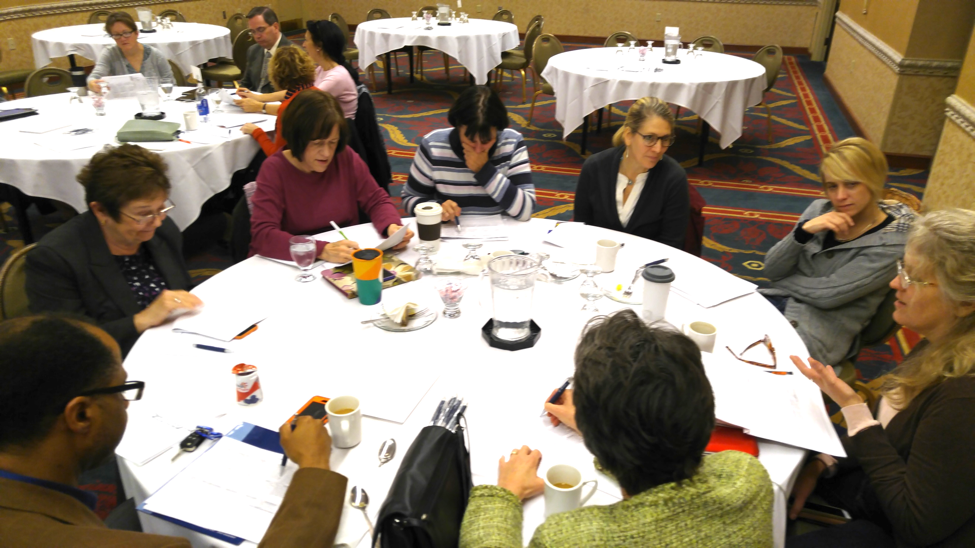
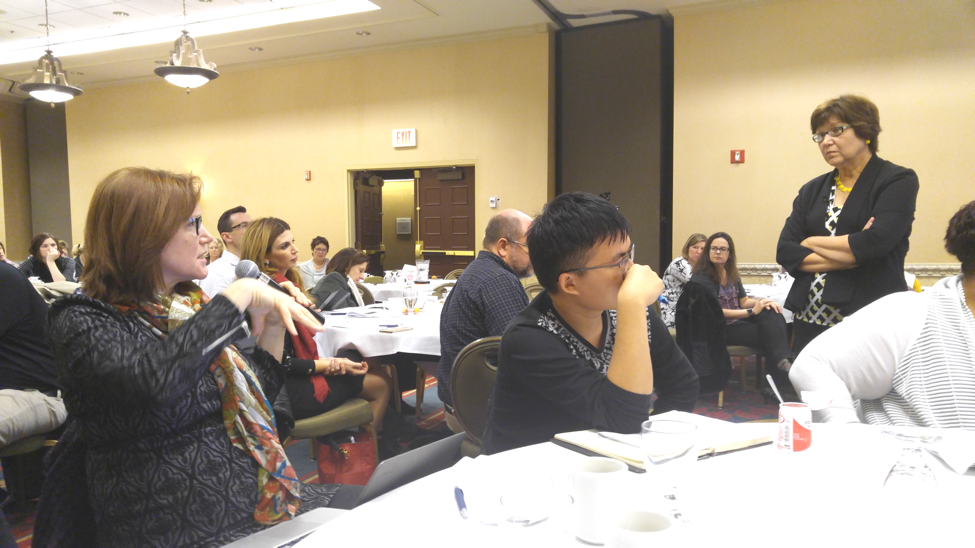

Introduction to Rubrics
On September 23, 2016, Dannelle D. Stevens conducted two workshops at Syracuse University on rubrics as assessment tools. There was a morning and afternoon session that covered rubrics to use at the course as well as at the program level. Find below the presentations and handouts:
- Presentation 1–Introduction to Rubrics (course level) (*.pptx)
- Presentation 1–Handout (*docx)
- Presentation 2–Introduction to Rubrics (program level) (*.pptx)
- Presentation 2–Handout 1 (.*docx)
- Presentation 2–Handout 2 (*.pdf)
